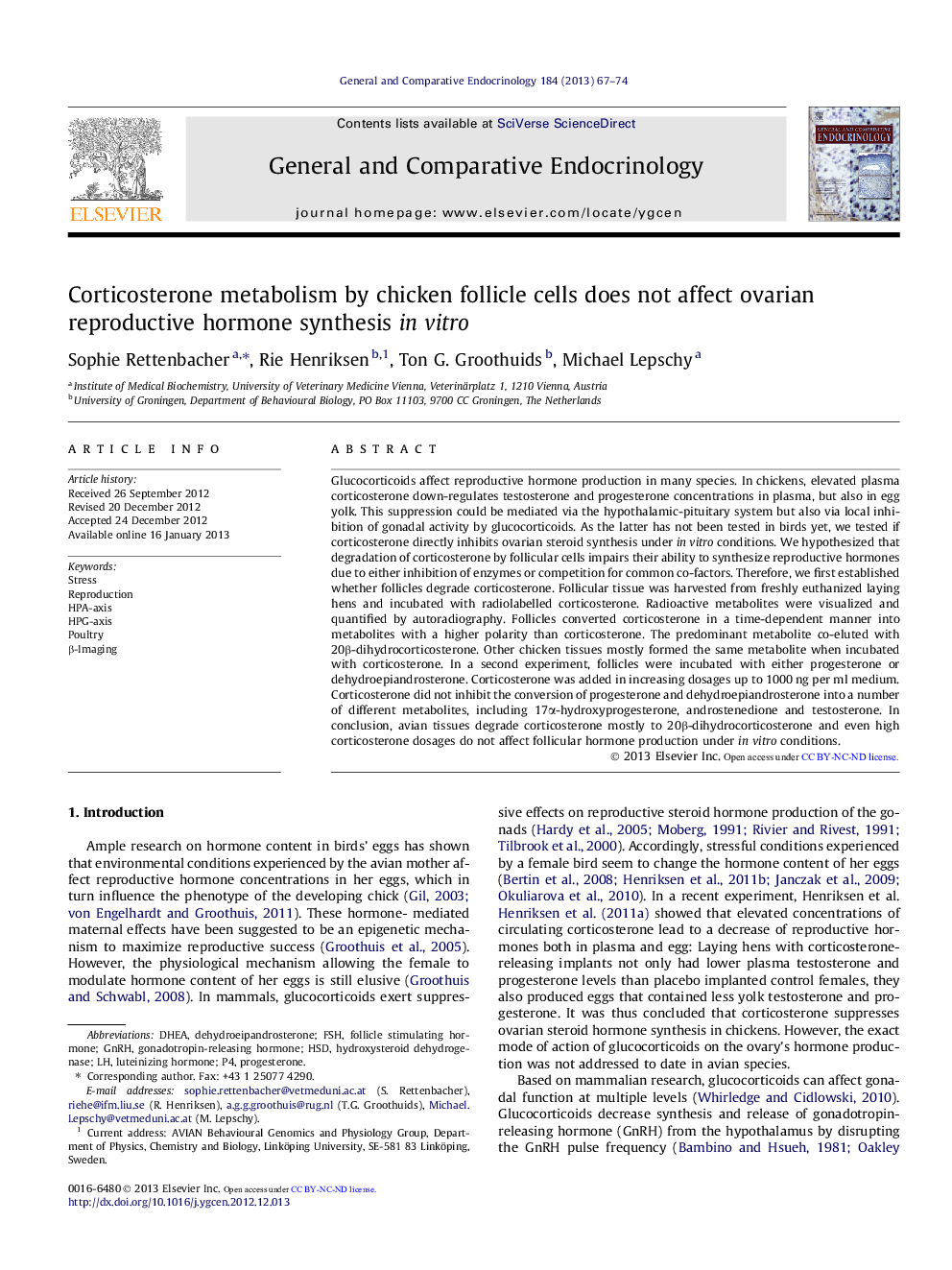| Article ID | Journal | Published Year | Pages | File Type |
|---|---|---|---|---|
| 5901519 | General and Comparative Endocrinology | 2013 | 8 Pages |
Glucocorticoids affect reproductive hormone production in many species. In chickens, elevated plasma corticosterone down-regulates testosterone and progesterone concentrations in plasma, but also in egg yolk. This suppression could be mediated via the hypothalamic-pituitary system but also via local inhibition of gonadal activity by glucocorticoids. As the latter has not been tested in birds yet, we tested if corticosterone directly inhibits ovarian steroid synthesis under in vitro conditions. We hypothesized that degradation of corticosterone by follicular cells impairs their ability to synthesize reproductive hormones due to either inhibition of enzymes or competition for common co-factors. Therefore, we first established whether follicles degrade corticosterone. Follicular tissue was harvested from freshly euthanized laying hens and incubated with radiolabelled corticosterone. Radioactive metabolites were visualized and quantified by autoradiography. Follicles converted corticosterone in a time-dependent manner into metabolites with a higher polarity than corticosterone. The predominant metabolite co-eluted with 20β-dihydrocorticosterone. Other chicken tissues mostly formed the same metabolite when incubated with corticosterone. In a second experiment, follicles were incubated with either progesterone or dehydroepiandrosterone. Corticosterone was added in increasing dosages up to 1000 ng per ml medium. Corticosterone did not inhibit the conversion of progesterone and dehydroepiandrosterone into a number of different metabolites, including 17α-hydroxyprogesterone, androstenedione and testosterone. In conclusion, avian tissues degrade corticosterone mostly to 20β-dihydrocorticosterone and even high corticosterone dosages do not affect follicular hormone production under in vitro conditions.
⺠Chicken follicle cells degrade corticosterone to mostly 20β-dihydrocorticosterone in vitro. ⺠Corticosterone did not affect enzymatic conversion of progesterone and DHEA by ovarian tissue. ⺠Metabolites such as 17α-hydroxyprogesterone, androstenedione and testosterone were formed.
